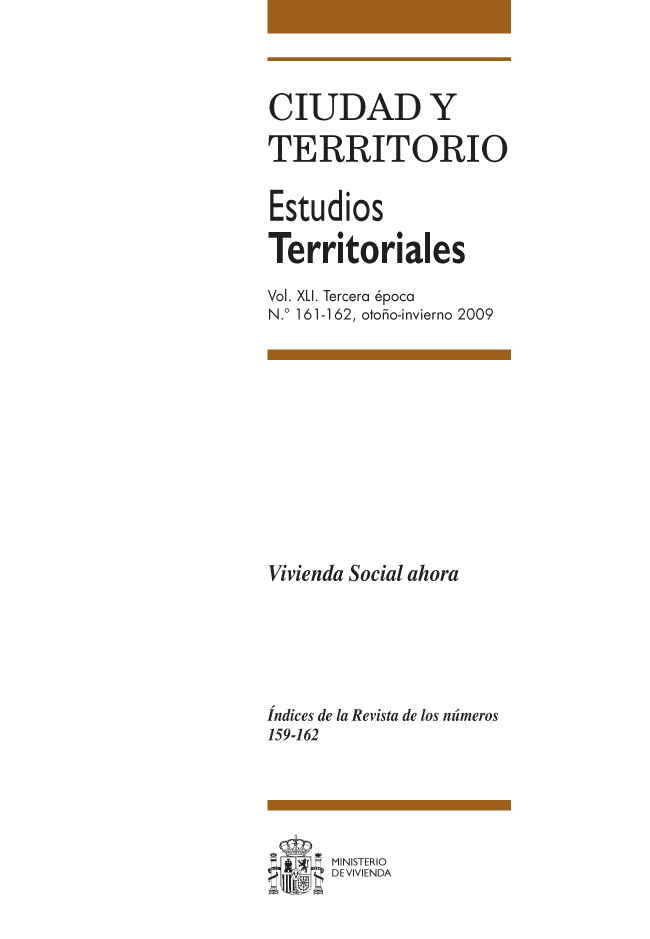Eco-Neighbourhoods for Better Cities
Keywords:
Barrios, ecología urbana, planeamiento de desarrollo, sostenibilidad urbana, urbanismoAbstract
The authors propose the idea of the eco-neighbourhood in terms of the environmental crisis now being faced.
Having described the European experience as to the idea, they then lay out a series of principles here felt
to be needful for its further development. The definition here put forward broadens the technological and
ecological scope of the idea as it is at present received by certain professional media and urges that the Econeighbourhood
be rather thought of as an integral part of the city as it is. Such an Eco-neighbourhood
pre-supposes a broadening of both the rights and obligations of its in-dwellers and among these not only
ecological responsibility on their part but an active role in the conception and running of these habitats They
are here felt to be of signal importance in the rehabilitation of the city as an integrating whole rather than
exceptional phenomena.
Downloads
Downloads
Published
How to Cite
Issue
Section
License
Copyright (c) 2009 Agustín Hérnández Aja, Isabel Velázquez Valoria, Carlos Verdaguer Viana-Cárdenas

This work is licensed under a Creative Commons Attribution-NonCommercial-NoDerivatives 4.0 International License.
Considering the provisions of the current legislation on Intellectual Property, and in accordance with them, all authors publishing in CyTET give -in a non-exclusive way and without time limit- to the Ministry of Transport, Mobility and Urban Agenda the rights to disseminate, reproduce, communicate and distribute in any current or future format, on paper or electronic, the original or derived version of their work under a Creative Commons Attribution-NonCommercial-NoDerivative 4.0 license International (CC BY-NC-ND 4.0), as well as to include or assign to third parties the inclusion of its content in national and international indexes, repositories and databases, with reference and recognition in any case of its authorship.
In addition, when sending the work, the author(s) declares that it is an original work in which the sources that have been used are recognized, committing to respect the scientific evidence, to no longer modify the original data and to verify or refute its hypothesis. Author(s) also declare that the essential content of the work has not been previously published nor will it be published in any other publication while it is under evaluation by CyTET; and that it has not been simultaneously sent to another journal.
Authors must sign a Transfer of Rights Form, which will be sent to them from the CyTET Secretariat once the article is accepted for publication.
With the aim of promoting the dissemination of knowledge, CyTET joins the Open Journal Access (OA) movement and delivers all of its content to various national and international indexes, repositories and databases under this protocol; therefore, the submission of a work to be published in the journal presupposes the explicit acceptance by the author of this distribution method.
Authors are encouraged to reproduce and host their work published in CyTET in institutional repositories, web pages, etc. with the intention of contributing to the improvement of the transfer of knowledge and the citation of said works.








 Enlace a CyTET en Linkedin
Enlace a CyTET en Linkedin